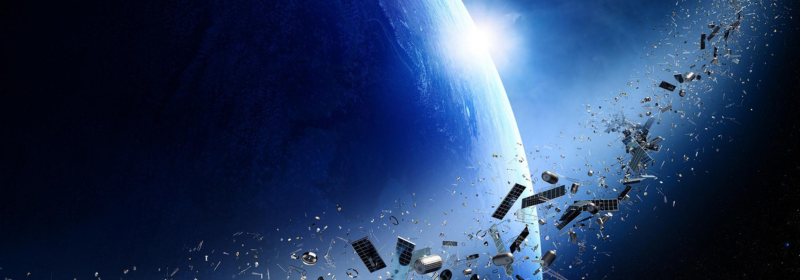- This system will reinforce its capacity to protect military and civilian satellites and space assets in low orbits from the risk of impact with debris orbiting without control and other approaching satellites that could damage or neutralize them
- Indra will deliver one of the most advanced space debris detection radars in the world, which will be an improved version of the S3TSR surveillance radar currently in operation in Spain
- The contract covers the production, integration and delivery of the radar, as well as the provision of operational capabilities from deployable working positions and technical and logistical services

Following the German Parliament’s approval, Indra has signed a contract with the National Procurement Office (BAAINBw) of the German Armed Forces (Bundeswehr) to provide the country’s air force, the Luftwaffe, with a last generation radar capable of detecting objects in low space orbits.
The system will protect satellites in service from potential impacts with debris from other missions orbiting at high speed in an uncontrolled manner that could damage or disable them. It will also help protect them by monitoring any attempts by other satellites to approach them to jeopardize their missions or gather information about them.
Indra, through its German subsidiary, and as a flagship company in the aerospace and defence sectors, was invited to take part in this tender, which it won thanks to its space radar’s proven maturity, its high performance and its modular and flexible design enabling it to progressively increase its capabilities.
Manuel Ruiz, Indra’s director of Integrated Defence Systems, highlighted that “this kind of radar protects the space assets on which essential services for our society depend, including communications, transport, logistics and meteorological information. We’re really proud to be working with the Bundeswehr on what will be one of the most sophisticated and longest-range radars in the world, and we’re grateful for the support provided by the CDTI, the Spanish Space Agency and the Spanish Space Command in the development of this technology”.
The German Space Command (WRKdoBw) will be tasked with operating this space surveillance radar by accessing it remotely from the space situational awareness center (WRLageZ) located in Uedem.
Data on objects in near-Earth orbits will be cataloged and they will serve as the basis for dedicated tracking of objects of interest. Indra’s radar and other additional sensors available in the country, such as its recently acquired telescopes forming a network of sensors to enhance space situational awareness, will be used in combination for this purpose.
The acquisition of the space radar is an element of the German program known as “L-GUARD” (LEO - Groundbased Upscaled AESA RaDar), which, in turn, forms part of the Space Surveillance system (SysWRÜbw).
The decision to award this important contract to Indra will reinforce European cooperation and the continent’s technological sovereignty over a capability that’s critical to the security and well-being of its citizens. It will thus harness the experience of Indra, the developer and supplier of the S3TSR space surveillance radar, the main sensor of the Space Operations and Surveillance Center of the Spanish Space Command, which, in turn, is integrated into the surveillance network of the EU-SST (European Union Space Surveillance and Tracking Partnership) consortium. One of the main roles of this consortium is to generate a catalog with detailed information on active and inactive satellites and space debris, an essential tool for predicting and preventing collisions in space and protecting space missions and terrestrial infrastructures by calculating re-entry and fragmentation trajectories. The development currently ongoing in Germany will give further impetus to the procurement of increasingly advanced radars to guarantee Europeans’ free access to and use of space.